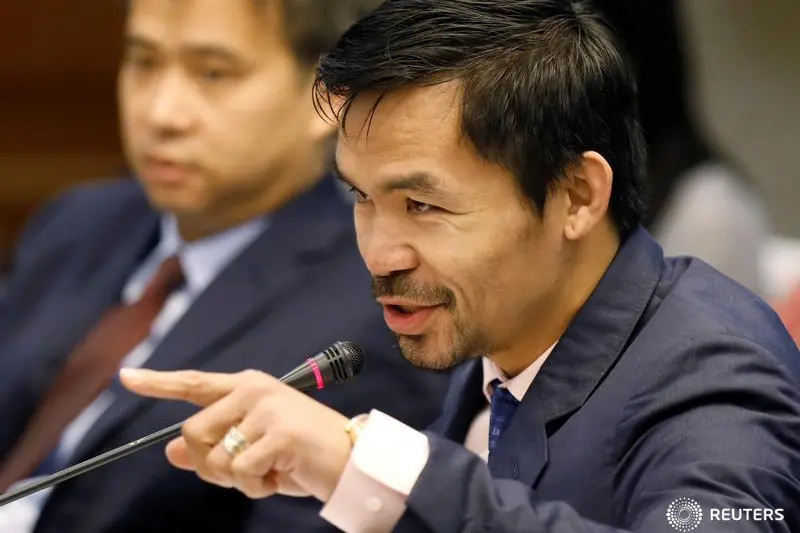PHOTO
MANILA - Boxing icon Manny Pacquiao vowed on Friday that if elected Philippines president he would strengthen efforts to recover billions of dollars of wealth missing since the fall of the Marcos dictatorship, as part his anti-graft platform.
Pacquiao's comments are a jab at rival and early favourite Ferdinand Marcos Jr, whose family was accused of plundering an estimated $10 billion during his late father's opulent two-decade rule, spending it on jewellery, real estate and scores of artworks including those of Pablo Picasso and Claude Monet.
Pacquiao said the Presidential Commission on Good Government (PCGG), which recouped $3.41 billion of wealth from the Marcoses and their associates in 33 years, would be empowered to recover more if he wins the May 9 election.
"We will strengthen the PCGG and the money that belongs to the government should be given to the government," Pacquiao told a forum of presidential candidates, from which Marcos, better known as "Bongbong", was absent citing a schedule conflict.
"The reason why our country is poor is because of thieves in government and that is why we need to eradicate corruption," said Pacquiao, a senator and former eight-division champion.
The Marcos campaign team did not immediately respond to a request for comment.
In a Jan. 25 radio interview, Marcos acknowledged court judgements against the family regarding assets and it would respect the law and court decisions.
Like Pacquiao, other presidential contenders, Vice President Leni Robredo, Manila mayor Francisco Domagaso, Senator Panfilo Lacson and Leody de Guzman, a labour leader, all pledged to root out government graft and protect public money.
Despite being overthrown in a 1986 revolt and driven into exile, the Marcos family remain a powerful force in the Philippines, with loyalists throughout the bureaucracy and political and business elite.
The family returned to the Philippines in the 1990s and Marcoses have held political office ever since, including governors, members of congress and senators.
(Reporting by Karen Lema and Neil Jerome Morales; Editing by Martin Petty) ((karen.lema@thomsonreuters.com; +632 841-8938;))





















